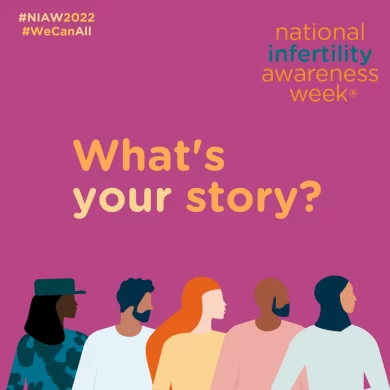For many women, the conception and birth of a child is a momentous, long-awaited, and life changing event. Even the emotional rollercoaster that comes with sleepless nights and rapidly changing hormones is mitigated by the excitement of, and love for, a new baby. But for the millions of women grappling with the challenge of infertility, the mere topic of babies and motherhood can be heartbreaking. According to the Centers for Disease Control and Prevention, roughly six million women in the US alone face the difficult reality of struggling to get, or remain, pregnant.
In addition to the physical toll that infertility can have on a woman’s body, it can also wreak havoc on their mental well-being. Discovering infertility issues comes with its own mixed bag of emotions alongside the difficult journey of infertility treatments and attempted pregnancies. The mental health impacts of infertility are not always discussed openly, so let’s take this opportunity to explore this topic and how women can seek out professional support during this time.
Infertility and mental health
In most cultures, parenthood is viewed as a major transition in a person’s life. For many women, it is often assumed that they will conceive and give birth to a child simply as part of being a woman. But when this becomes problematic or difficult to achieve, it can quickly become a stressful and anxiety-inducing situation. Research published by the North Carolina Medical Journal found that common mental health concerns of fertility patients include depression and anxiety. Marital problems, sexual dysfunction, diminished self-esteem, and grief can also be commonly experienced emotions and challenges for women (and their partners) experiencing infertility. All of these emotions can quickly pile on and negatively impact a woman’s day-to-day life.
Many women experiencing infertility report that each month’s cycle becomes a tumultuous storm of emotions ranging from anger, sadness, fear, and guilt. For some, the ups and downs of their month cycle can be too much to bear as they experience the hopefulness of a potential pregnancy prior to their cycle, and then the hopelessness when they discover they’re not pregnant. And if a woman has decided to go through infertility treatment – which can be grueling and intrusive – these emotions may be further intensified.
Additionally, the decision to stop trying to become pregnant and fully face the inability to bear children can be a devastating one that comes with a range of emotions for each individual woman.
Infertility isn’t just physical
Much focus is typically placed on the physical aspects of not being able to conceive or the arduous processes of infertility treatments, but it is important to remember that the mental health impacts can be just as significant. It’s understandable for women and their partners to feel isolated or alone while navigating this difficult time in life. But remember that you are not alone. Not only are millions of other women going through a similar experience, there are counselors trained to support and guide you through this challenging time.
Resolve, the National Infertility Association, recognizes National Infertility Awareness Week from April 24-30, 2022, however you can share your story and hear from others any day of the year. #WeCanAll
If you or someone you know is suffering from anxiety or depression because of infertility issues, please know that professional support is available to you. Here at Sunstone, we have empathetic and highly trained counselors who specialize in women’s mental health ready to guide you to a brighter tomorrow.
By Sunstone Counseling in collaboration with Julia Ward






